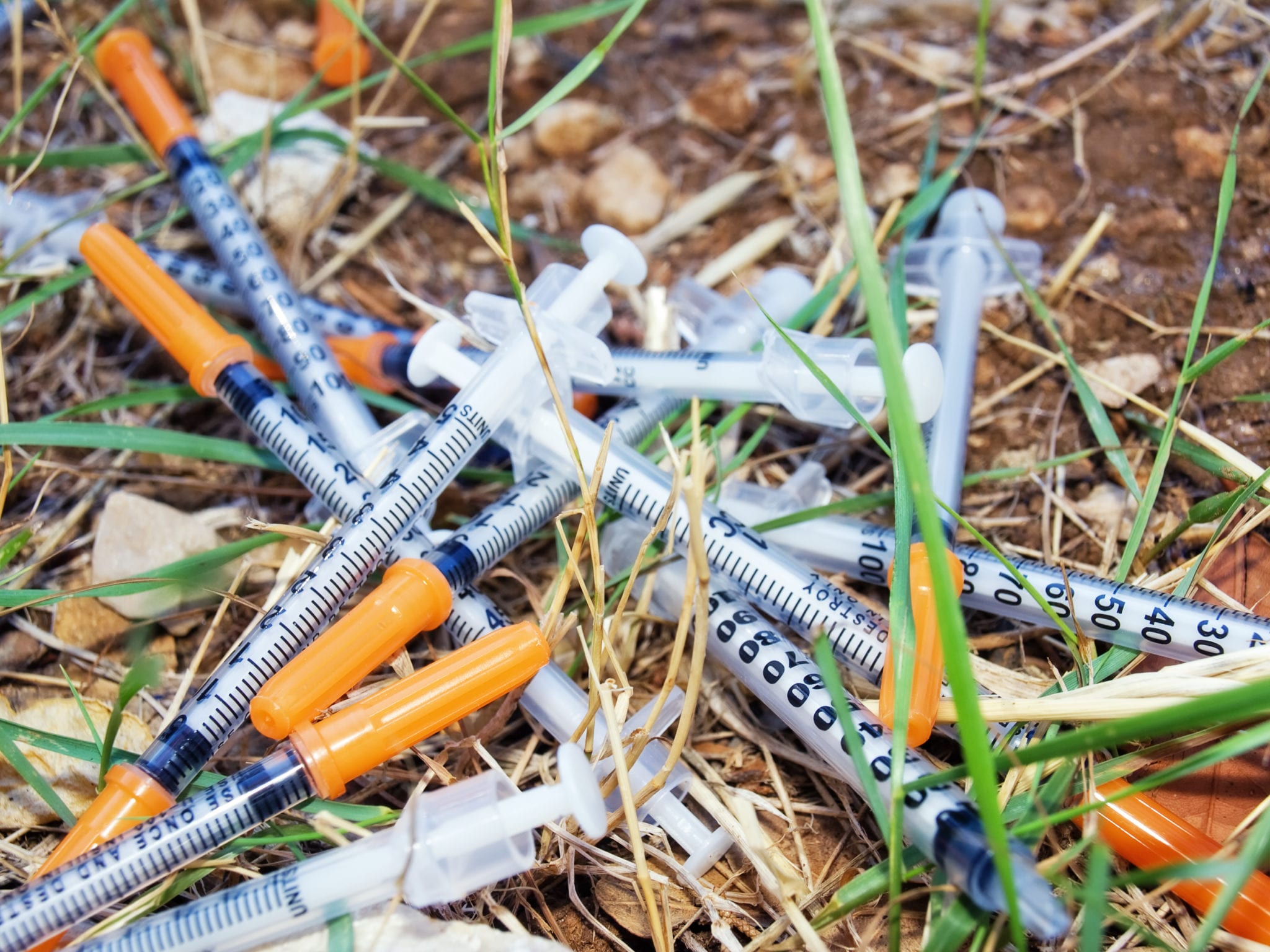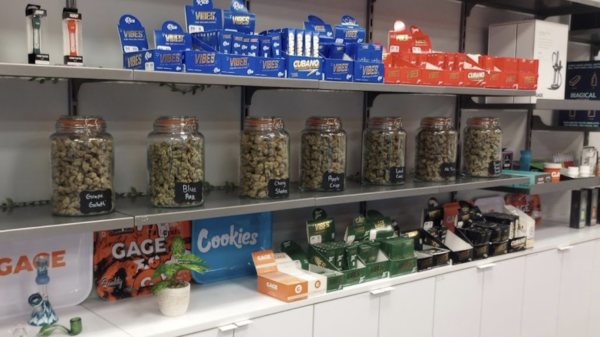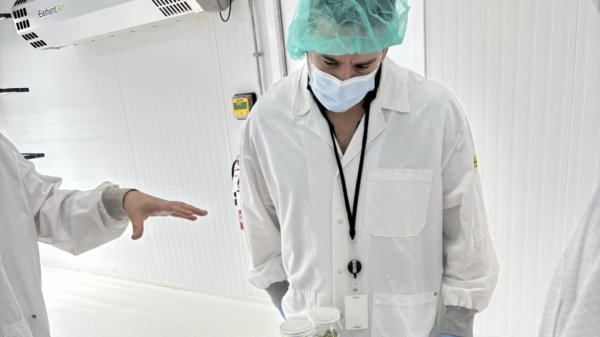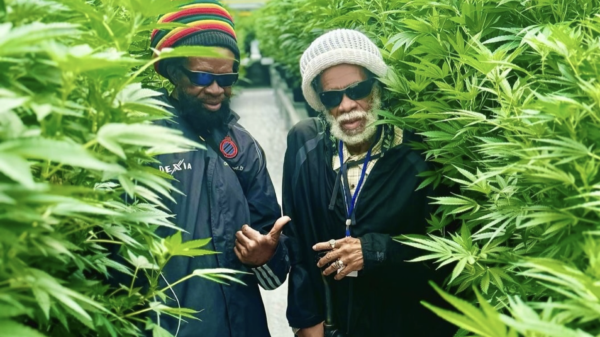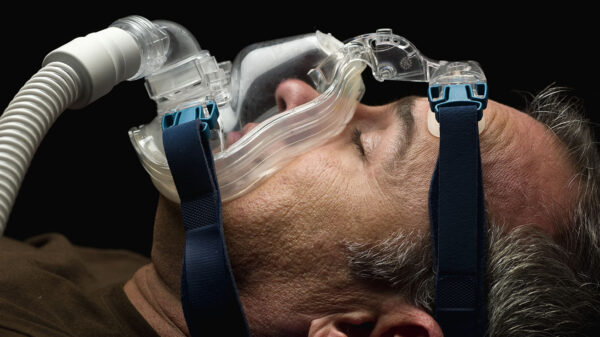Cannabis could be a powerful tool to help battle the overdose crisis, but at-risk people can’t access the weed they need.
That’s the message from Monday’s Cannabis Science Symposium, an inaugural one-day public research forum, hosted by the BC Centre on Substance Use (BCCSU) in Vancouver. The event brought together researchers, public health workers, people with lived experience, and policymakers to discuss how cannabis could be used as a harm-reduction tool in the overdose crisis.
Canada’s cannabis legalization was meant to reduce the harm created by prohibition, but it actually created extra barriers for people who use drugs, said Jenna Valleriani, CEO of the National Institute for Cannabis Health and Education.
“Without granting people reasonable access to cannabis, cannabis as a harm reduction tool will never be realized,” Valleriani said.
Not a single person she has met while working in the Downtown Eastside has bought cannabis from a legal government store, she said.
Conditions set out by government stores are next to impossible to meet for some people living on the DTES, she said. To start you need an ID, a fixed billing and shipping address for online orders, a credit card and a minimum buy. That means someone who earned $5 from binning can’t go and buy $5 worth of cannabis. Instead they need to work two days and go in to a store with $10 to buy an $8 pre-roll.
Cannabis legalization also increased the punishments for anyone caught buying or selling unregulated cannabis, and these punishments are unfairly doled out by police to marginalized people, Valleriani said.
Uneven access to cannabis creates harm
This uneven access to cannabis was a sticking point for many at the symposium.
“What do you call a supervised consumption site for alcoholics?” panelist Dean Wilson, a prominent drug activists, asked the crowd. “A bar,” he answered, generating some grim laughter from the crowd.
It’s a joke that hit close to home with the crowd, many of whom work on the front lines of the overdose crisis and have witnessed the harms many health experts say are inflicted by prohibitionist drug policies. Alcoholics can go to a bar, but people who use drugs have nowhere to go.

Overdose fatalities kill more people in B.C. than suicide, homicide and car crashes combined, said M-J Milloy, Canopy Growth professor of cannabis science at the University of British Columbia. Graph courtesy of M-J Milloy.
Just less than 5,000 Canadians and 70,000 Americans fatally overdosed in 2018, M-J Milloy, Canopy Growth professor of cannabis science at the University of British Columbia said. Milloy is also a research scientist at the BCCSU and hosted the symposium.
The overdose fatalities in B.C. — which add up to more than the numbers of suicide, homicide, and car crash victims combined — all could have been completely avoided if all drug users had access to a safe consumption site, like Vancouver’s InSite, Milloy said.
InSite is North America’s first supervised injection facility and offers free clean needles, a supervised injection room, health education and access to on-site treatment services.
Stigma against drug users is fuelling the overdose crisis
“We need a complete change, but it’s you who needs to change and not me. I need opioids like you need oxygen,” Wilson told the crowd. “So get off your bullshit high horse and start treating us like real people who need therapy.”
A swathe of recent scientific studies have built a case for cannabis as a harm reduction tool for people who use harder drugs like heroin.
Studies from the BCCSU and UBC have shown daily cannabis use reduces the chances at-risk youth will start injecting drugs and reduces the likelihood traces of fentanyl will turn up in their urine. Another study showed daily cannabis users are more likely to keep participating in opioid use disorder therapy.
Read more: Cannabis could alleviate major depression and suicidal thoughts in PTSD sufferers, study shows
Cannabis is the harm reduction tool people can’t access
But cannabis legalization has created insurmountable barriers between medical patients and their weed, according to several of the symposium’s panelists.
“Legalization has been a cruel joke for the casual user…and an absolute nightmare for medical users,” panelist Neil Magnuson said. He’s the head of the Cannabis Substitution Project, which hands out free cannabis care packages from the Vancouver Area Network of Drug Users (VANDU) building on the Downtown Eastside.
While each person’s reasons for drug use are unique, people tell Magnuson cannabis helps treat their reasons for using drugs, such as chronic pain, mental health and trauma.
Read more: Daily cannabis use could help battle overdose crisis: study
But patients’ ability to self-medicate has been hindered by the government’s dosage limitations, he said.
You can’t smoke too much weed, Magnuson said. You can smoke two grams of dried cannabis and that’s about as high as you’ll get, even if you smoke more. But with edibles, he added, you can eat so much you put yourself in a three-day coma.
That’s why it’s important for casual users to start low and go slow, he said, but for medical patients the government regulated dosage of 10 milligrams of THC or CBD takes away the effectiveness of the medicine.
Magnusson is also a vocal critic of the province’s community safety unit, which is responsible for cannabis-related enforcement in B.C., and called it the “most inaccurately named and despicable police unit.”
Read more: Founder of Raided Victoria Dispensary Calls Legal System ‘Prohibition 2.0’

